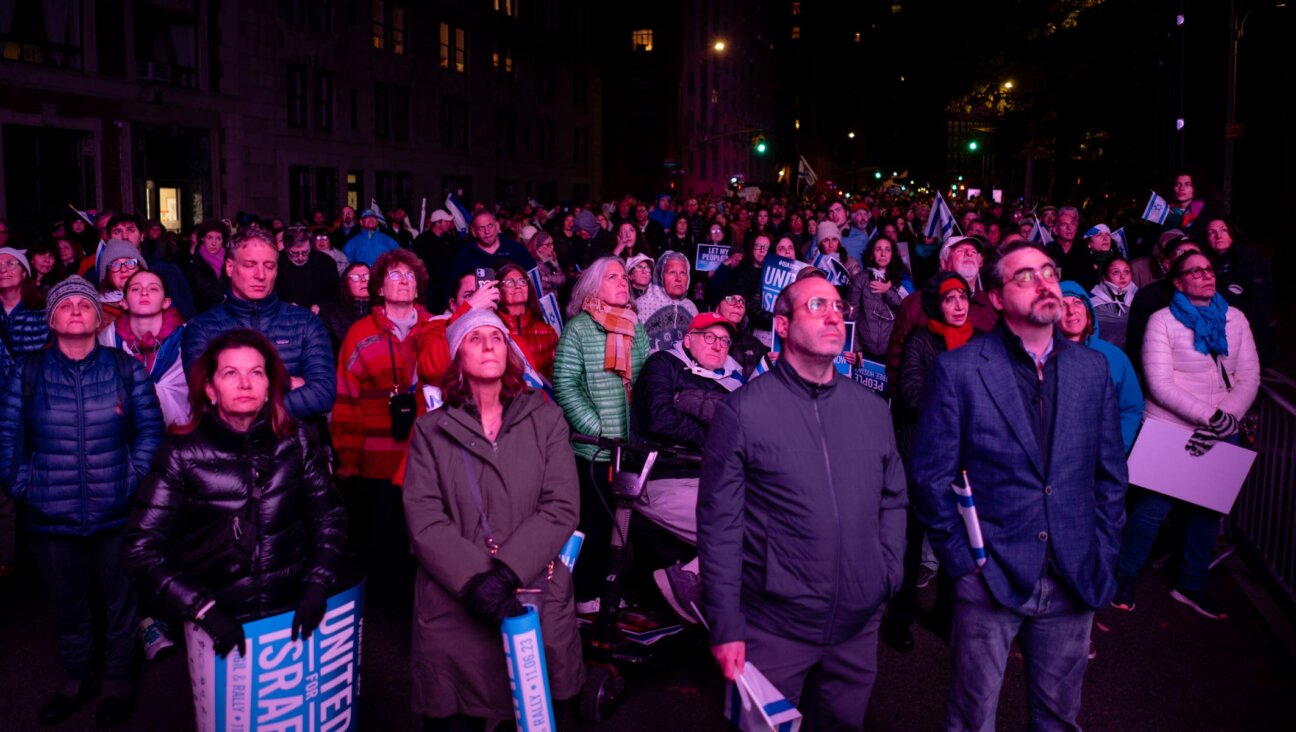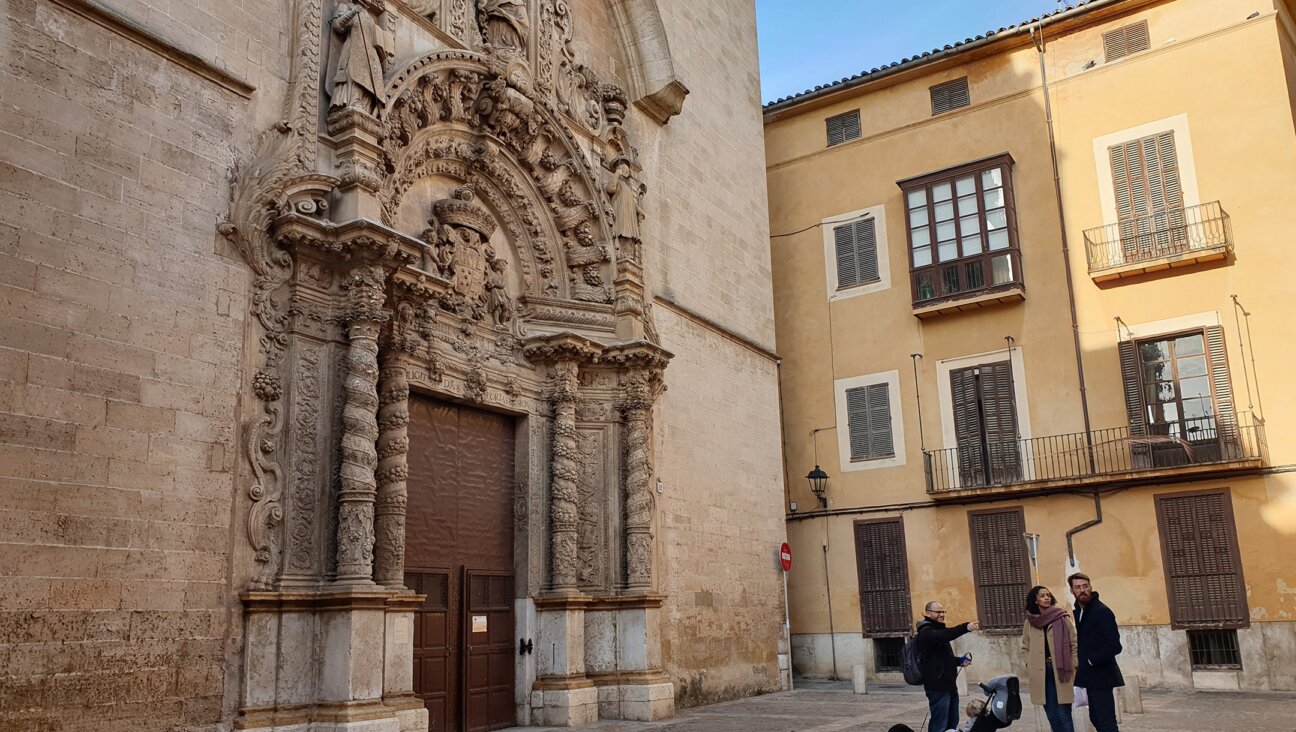Facing declining enrollment, Schechter Manhattan to shutter at end of school year
The school, one of just two in New York City with roots in the Conservative movement, has just 63 students

A classroom with an empty school desk. Photo by iStock
(New York Jewish Week) — Schechter Manhattan, a Conservative Jewish elementary and middle school on Manhattan’s Upper West Side, will close at the end of the school year.
The school is framing the closure, which it announced in a video chat with parents on Tuesday evening and in a subsequent email, as a collaboration with Rodeph Sholom School, a nearby Reform Jewish school that is affiliated with a synagogue of the same name. Schechter is encouraging its 63 students, in grades K-8, to enroll at Rodeph Sholom, which will also be hiring Schechter’s head of school and another senior administrator to lead a new Judaic studies program.
“Schechter Manhattan will be planning and working towards joining forces with Rodeph Sholom School as of July 1, 2024, thereby ceasing operations as an independent entity on June 30, 2024,” read Tuesday night’s email from the trustees of the school, which was founded in 1994 and moved in 2011 to a new development on 100th Street and Columbus Avenue.
Schechter Manhattan’s closure means that only one school with roots in the Conservative movement — the Solomon Schechter School of Queens, which identifies as a “community” school — remains in the five boroughs. Schechter’s leadership attributed the closure to declining enrollment at schools throughout New York City, as well as a cost per student that has become untenable as the school averages seven students per grade.
“Demographic change, social trends and shifting parent priorities are affecting all manner of private schools, including Jewish day schools,” the email read. “Moreover, in a post-denominational world, boundaries between Conservative, Reform, non-denominational and interfaith communities no longer serve our shared desire to provide a vibrant, sustainable, and high-quality Jewish education to the next generation of Jewish leaders and lay public.”
The school also acknowledged that the name “Schechter,” once signifying a major network of egalitarian Jewish day schools, had become a hindrance to enrollment. On a Frequently-Asked-Questions page, the school wrote, “the Schechter brand has experienced challenges that did not make sense to carry over to the new school.”
Under the terms of the partnership, Rodeph Sholom is working to recruit at least 28 Schechter students, or nearly half of Schechter’s student body, by Dec. 1. Those who enroll by that date will get a range of perks, including paying their current Schechter tuition for the next two years and only moderate increases in the following three years.
That’s a big deal, because the two schools’ tuition rates are significantly different. Schechter has advertised a sliding scale for tuition based on income level, with payments running anywhere from $10,000 to $45,750 per student. Rodeph Sholom also offers tuition assistance, but its rates go much higher, up to a maximum of more than $63,000 per student for its oldest grades — one of the highest Jewish day school tuition rates in the country. Philanthropic support is enabling the tuition benefits for Schechter Manhattan parents, according to the FAQ page.
The Dec. 1 deadline is high-stakes: If the 28-student threshold is not met by then, the deal is off, and all students would have to go through Rodeph Sholom’s regular admission process — and pay its regular tuition.
In either case, according to the FAQ, some element of Schechter’s program will be incorporated into Rodeph Sholom. Chris Aguero, currently Schechter’s head of school, will lead the new Advanced Judaics and Hebrew Language Program along with Shira Jacobson, currently Schechter’s assistant head of school. The FAQ page said the new Judaics program would offer “a level of creativity and rigor commensurate with the Judaics and Hebrew language options currently offered at Schechter Manhattan.”
In addition, Rodeph Sholom will absorb three Schechter board members. The FAQ page said other Schechter faculty “will also be invited to teach” at Rodeph Sholom, though it did not provide further details.
“Change is never easy,” the email said. “This decision wasn’t taken lightly but was made with the future of our students and the strength of Jewish education at heart. We cherish the memories, experiences, and values we’ve shared as Schechter Manhattan, and we’re excited about the new journey with Rodeph Sholom School.”
The closure is not the first for a Schechter school in the area. The Solomon Schechter High School of Manhattan merged with a New Jersey Schechter school in 2006 and closed down permanently the following year. A Long Island Schechter school closed the next year, in 2008.
Meanwhile, other small Jewish schools across the region have also struggled: Brooklyn’s Lamplighters Yeshiva, a decade-old Montessori school in the Chabad tradition, closed in 2020, and the Idea School, a Modern Orthodox high school in New Jersey, closed in June.
This article originally appeared on JTA.org.






















